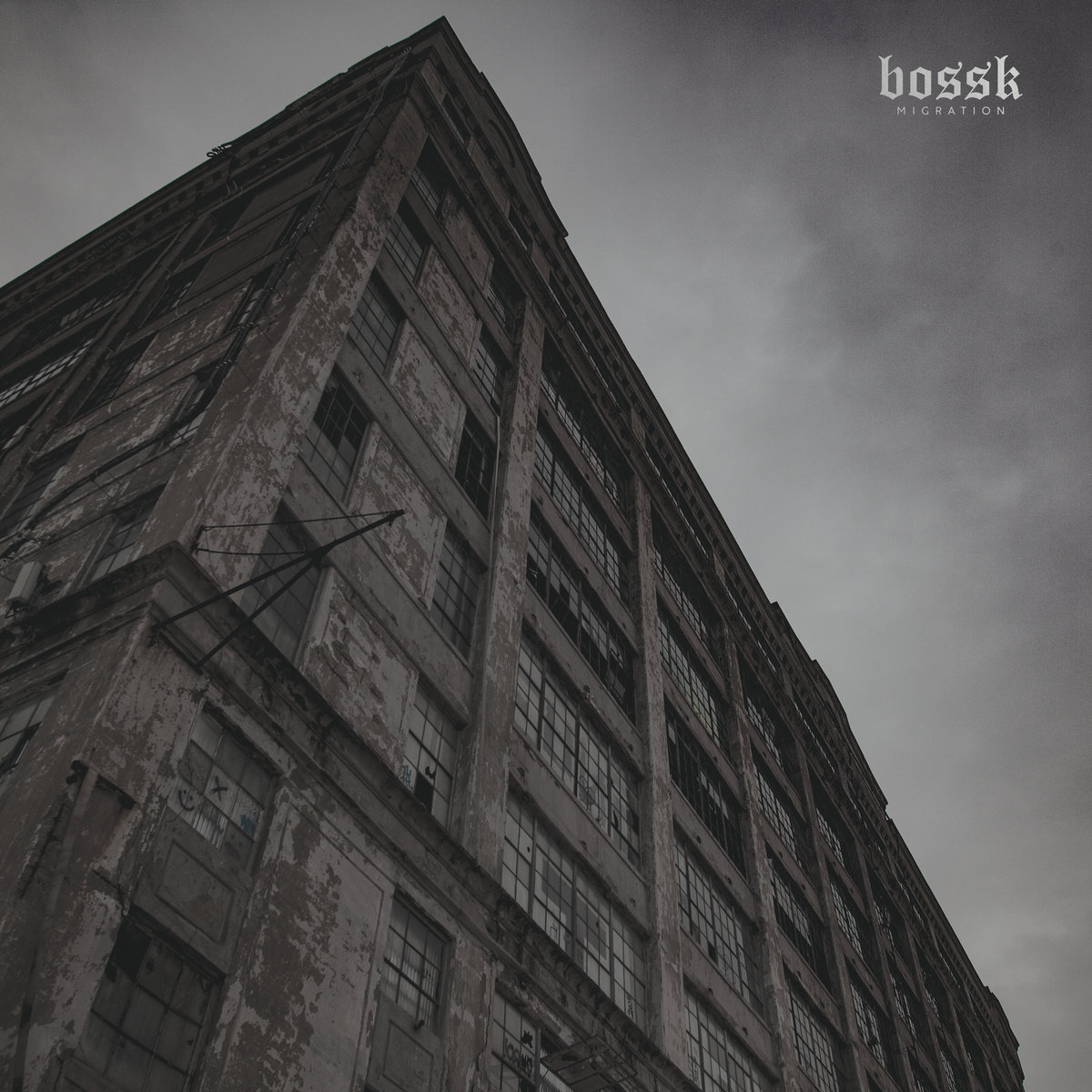ALBUM REVIEW: Migration – Bossk
BOSSK have always chosen to work at their own pace. In fifteen years we’ve seen just a handful of releases from them, but this limited output belies a meticulous approach to their craft. They became something of a cult phenomenon with the quiet success of .1 and .2, and established themselves as a promising post-metal outfit, but disbanded after just three years; seemingly doomed to fade into mid-noughties obscurity.
Four years later, and Kent’s homegrown harbingers of heavy took to the stage again whilst they set about devising their full-length debut. The serene-yet-sludgy Audio Noir arrived in 2016, and marked an impressive return to form for the Ashford quintet, who were by now firmly re-established in the underground consciousness. BOSSK built on the foundations laid in .1 and .2 in order to create an ambitious album which is resplendent in contradictions; both riffy and atmospheric, punishing yet soothing, meandering but concise.
Audio Noir was, above all, a tough act to follow. Beset by delays (not least BOSSK’s uncompromising approach) Migration arrives in an atmosphere of eager anticipation and weighty expectation. Our first glimpse of their second full-length came with lead single Menhir, whose monolithic riffing was accompanied by the vocal talents of CULT OF LUNA’s Johannes Persson; setting the tone nicely for an album which is largely defined by its collaborative character. Josh McKeown of PALM READER appears on second single HTV-3, and BOSSK are joined throughout by ENDON’s Koki Miyabe, Taro Aiko and the late Etsuo Nagura. Don’t be alarmed, though: Migration is a BOSSK album through and through.
BOSSK’s music has become all but synonymous with Seldon Hunt’s photographic style, but the album’s cover manages to differentiate itself whilst seeming somehow familiar. Migration signals its aesthetic shift away from the vibrant and lush textures of Audio Noir with stark grey geometry, and opening piece White Stork affirms that with the bleak onset of urban decay, before launching into the lead single. There is a claustrophobic quality to the swirling power electronics which divide Migration into discrete movements; evoking the choking air, polluted by the sound of transit. It would be easy to disregard these ambient moments and interludes as mere ephemera but, with BOSSK and ENDON in tandem, they become crucial components within the album’s overall dynamic.
Migration is said to narrate the ‘herculean journeys’ which we take on throughout our life, and the record is definitely tumultuous in tone. BOSSK do not tend to emphasise the emotive features of their work, so Migration represents an interesting development in that regard. The album reaches its destination in Unberth, which dissipates the album’s accumulated tension in moments of spectacular catharsis. There are sublime sequences throughout Migration which verge on the scale and style of PINK FLOYD, as well as moments of intensity which exceed their own high standards.
There can be little doubt that BOSSK have managed to match the ambitious scale and transcendent quality of Audio Noir. While the band employ the talents of guest musicians throughout, the record retains BOSSK’s characterful style: post-everything riffing, devised and executed with the utmost attention to detail. With Migration, BOSSK have gone from post-metal’s ones-to-watch to something completely undeniable. This is stoner succour for urban isolationism, and a refined example of contemporary heavy music to boot.
Rating: 9/10

Migration is set for release on June 18th via Deathwish Inc.
Like BOSSK on Facebook.

